Resources
Style
Planning
View All
THE blog
Want to know how to boost your fertility diet?
Then you need to learn about Choline! Choline is just as important in helping to prevent neural tube defects as the well known vitamin folate, but unfortunately, it’s not as well known or spoken about. If you’re looking for some choline rich foods for fertility, then read on!
Choline also plays an important role in:
- Supporting the transfer of nutrients across the placenta to ensure your baby receives the nutrients it needs
- Fetal brain development
- May assist in reducing the chances of your baby developing chronic diseases later in life
What’s the data?
The research that has been done over the past 20 years, outlines very clearly the benefits of choline when it comes to both overall health during pregnancy and the development of our babies brain.
Studies on animal models have shown that Choline plays a key role in enhancing brain function and also serves to protect the brain and its various elements as it develops.

Human studies on the other hand have shown that taking Choline in doses higher than what is currently recommended by various health bodies, has multiple benefits, including:
- Enhancing the function of the placenta
- May reduce the risk of preeclampsia
- Improves brain development in the infant
- Boosts reaction times in the infant
- Enhances an infants visual memory
Why haven’t you heard of Choline before?
Unfortunately, the research around Choline is relatively new in scientific terms (by this I mean the research has only really been looking into this topic for the past 20 years), and it’s not a well known supplement when it comes to fertility (well outside of the dietetic community anyway!).
The evidence while not well known, is really promising and it is well worth aiming to include more sources of choline in your diet if you are trying to conceive or pregnant.
So where do you find Choline?
Choline is found in the highest amounts in animal products.
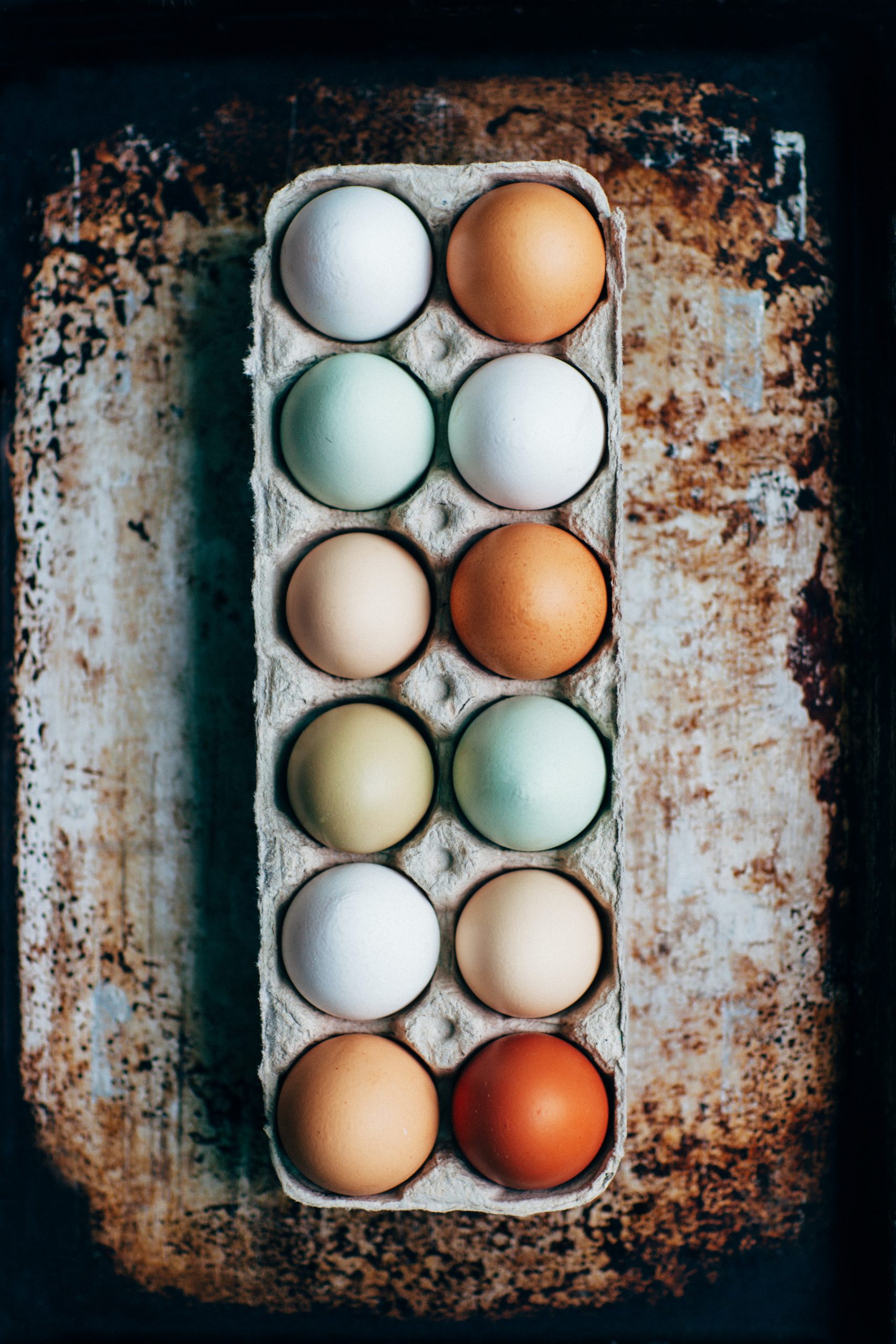
Top Choline Rich Foods for Fertility:
- Eggs
- Salmon
- Beef
- Chicken
- Dairy products
- Soybeans
Like many other nutrients, our choline needs increase dramatically during pregnancy with some studies suggesting that our choline needs may be almost double what is currently recommended by the guidelines.
Should I supplement Choline?
Unfortunately, many of us don’t currently get our choline needs from food alone, and in these cases a supplement may be of benefit to support a healthy pregnancy. Not all prenatal supplements contain Choline, and some also don’t contain enough to provide you with all the benefits. Some of my favorite prenatals that include adequate choline are FullWell Prenatal and Needed.
If you’re already taking a prenatal that doesn’t have choline, consider supplementing or assessing your diet to see if you meet the choline requirements for adequate fertility and pregnancy. You can find more fertility supportive supplements in my fertility dispensary here. Remember, it’s important to ensure that you work with a professional when selecting the right prenatal supplements for you!
Looking for More Support?

Looking for more 1-on-1 support on your fertility journey? Apply for a free 20 minute strategy call today. I can help you regulate your cycles, ovulate, and have a healthy pregnancy using my proven functional nutrition method. I look forward to speaking with you!
References:
- Blusztajn, Jan Krzysztof, and Tiffany J. Mellott. “Neuroprotective actions of perinatal choline nutrition.” Clinical chemistry and laboratory medicine 3 (2013): 591-599.
- Kwan, Sze Ting Cecilia, et al. “Maternal choline supplementation during pregnancy improves placental vascularization and modulates placental nutrient supply in a sexually dimorphic manner.” Placenta 45 (2016): 130. ; Jiang, Xinyin, et al. “A higher maternal choline intake among third-trimester pregnant women lowers placental and circulating
- Boeke, Caroline E., et al. “Choline intake during pregnancy and child cognition at age 7 years.” American journal of epidemiology 12 (2012): 1338-1347.
- What Is Choline? An Essential Nutrient With Many Benefits (healthline.com)

What is a Fertility Diet?
You may have heard that eating a “fertility diet” would help you get pregnant. Or perhaps you’re here because you think your diet could be the reason behind some of the symptoms you’re experiencing like PMS, irregular cycles, or other hormone imbalances.
As a fertility dietitian, I work with women specifically on diet and lifestyle modifications to improve their chances of conceiving naturally. Below are my top 10 favorite fertility foods, as well as the reason behind why they are so good for you when trying to conceive.
As you may know, what you eat affects your body, including for fertility. Think about it, the food we eat affects our heart, our blood sugar, our weight – why wouldn’t it also be affecting our reproductive system?
All of the fertility foods I include are functional foods, meaning they have a health promoting function in the body – specifically for balancing hormones, fertility and pregnancy.
If you’ve tried any of these fertility foods before, let me know in the comments, and be sure to keep your eye out for more fertility nutrition blog posts.
The Top 10 Fertility Foods (Dietitian Approved!)
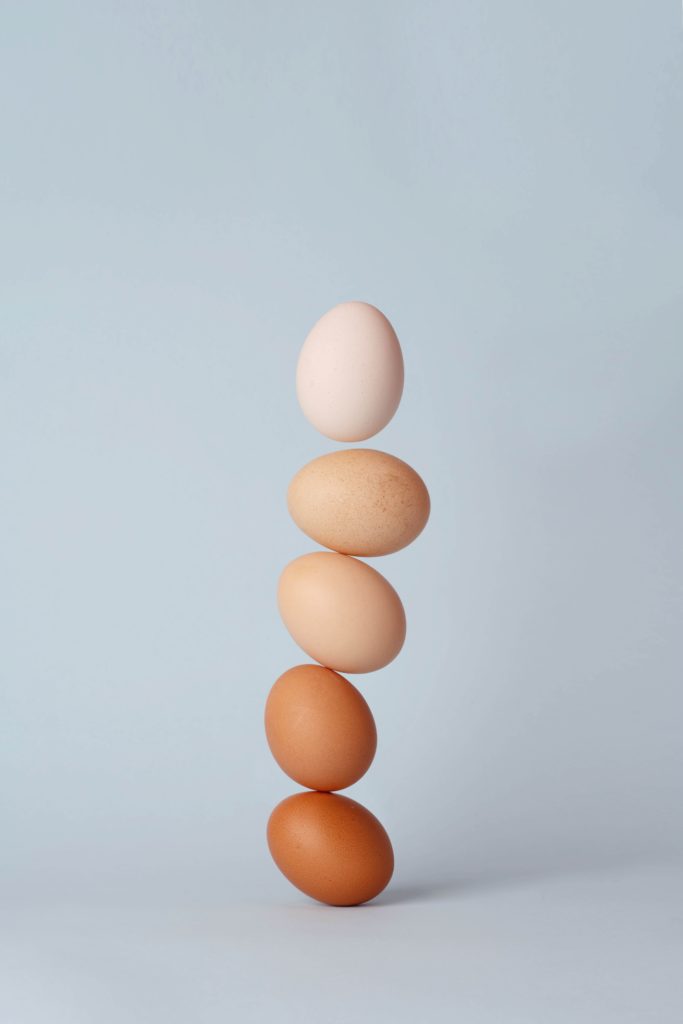
The first fertility food I recommend is pasture-raised organic eggs. Eggs are an amazing source of choline, specifically the yolk, which is essential for developing your baby’s brain. The cholesterol in the yolk is also a building block for the hormone progesterone. Eating enough healthy cholesterol in the form of pasture-raised organic eggs is an egg-cellent way of eating for fertility. (Sorry, had to! 🙂 ) One of my absolute favorite ways to eat eggs is by making Shakshuka– an Israeli-Tunisian dish. I have an Instagram highlight dedicated just to Shakshuka if you’re looking for some inspiration!
Next up is dark leafy greens – which are full of folate. You may have heard that folate is super important for your baby’s development, but why is it exactly a fertility food? Folate is a co-factor in many metabolic processes in your body, namely in DNA methylation and replication – aka making new copies of DNA. When you have adequate folate in your diet, your body does a better job of copying DNA, aka making a new baby! Don’t be fooled by prenatal vitamins that have folic acid though. Folic acid is a less bio-available form of folate, meaning your body doesn’t absorb it as well. [Here’s a link to my favorite prenatal vitamins that were formulated by a dietitian!] Getting a variety of greens is great too, so don’t be afraid to mix it up! Some of my favorites are spinach, bok choy, collard greens, kale, swiss chard or rainbow chard, and arugula.
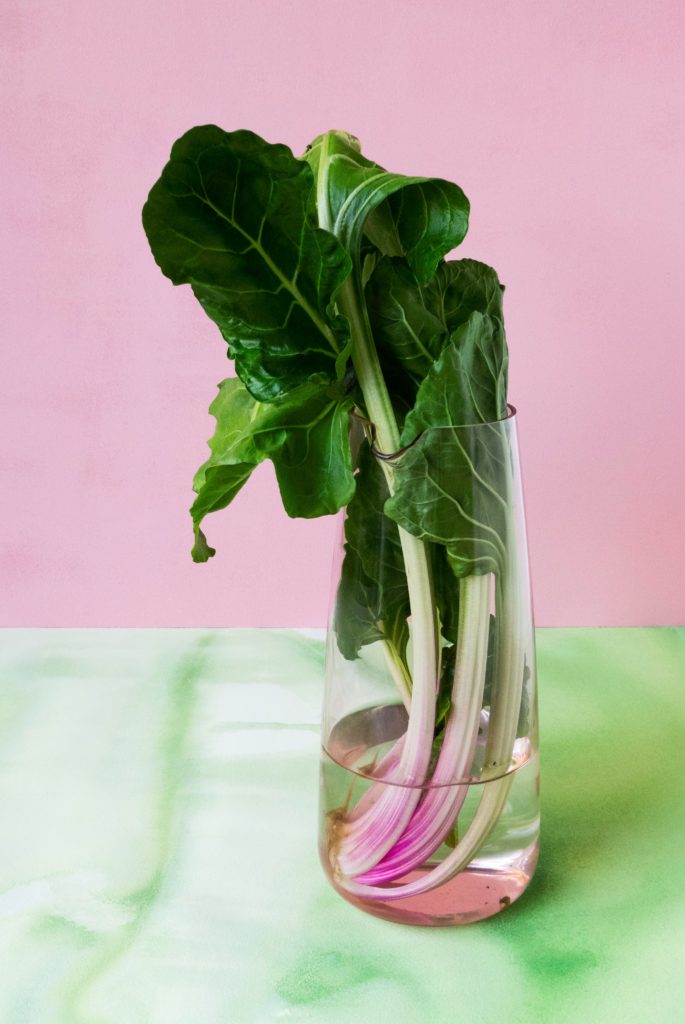
Omega-3 Fats are amazing for fertility!
The third food I recommend is salmon! Salmon is an amazing source of omega-3 fatty acids, which are a brain boosting fat. Omega-3s have been shown to improve cognitive development in fetuses. They balance out the ratio of omega-3 to omega-6 fats in the body. Since the Standard American Diet (SAD) is filled with omega-6 fats, we need to put an emphasis on eating more omega-3 fats. Other fish I recommend are tuna, cod, halibut, sardines (I’m super into them right now!) and herring. Looking for the most delicious salmon recipe, EVER? Definitely go bookmark this recipe for delicious salmon kebabs.
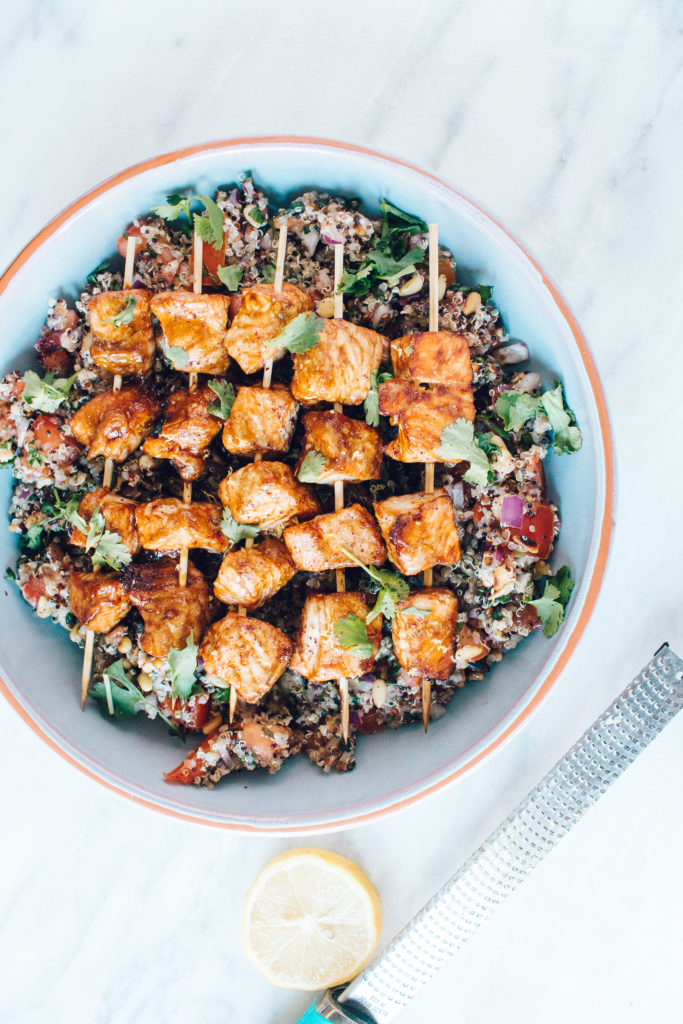
Full Fat Dairy & Citrus
The fourth food I recommend is full-fat dairy. Full-fat dairy has the active preformed vitamin A, while plant sources of vitamin A are pro-formed and less bio-active. Full fat dairy can also be very supportive of balancing hormones. [Note: only eat dairy if you can tolerate it.] I love full fat plain greek yogurt or adding some full fat cream to my coffee for a delicious treat.
Number five is citrus fruits like lemons, limes, and oranges. Citrus are an excellent source of vitamin C, a powerful antioxidant that’s helpful in reducing oxidative stress in your body. I love zesting citrus and adding it to water, smoothies, and salad dressings. There are so many ways to add citrus to your diet including add lemon to your water, making homemade vinaigrettes, or just packing an orange for an afternoon snack. It doesn’t get easier than this one!
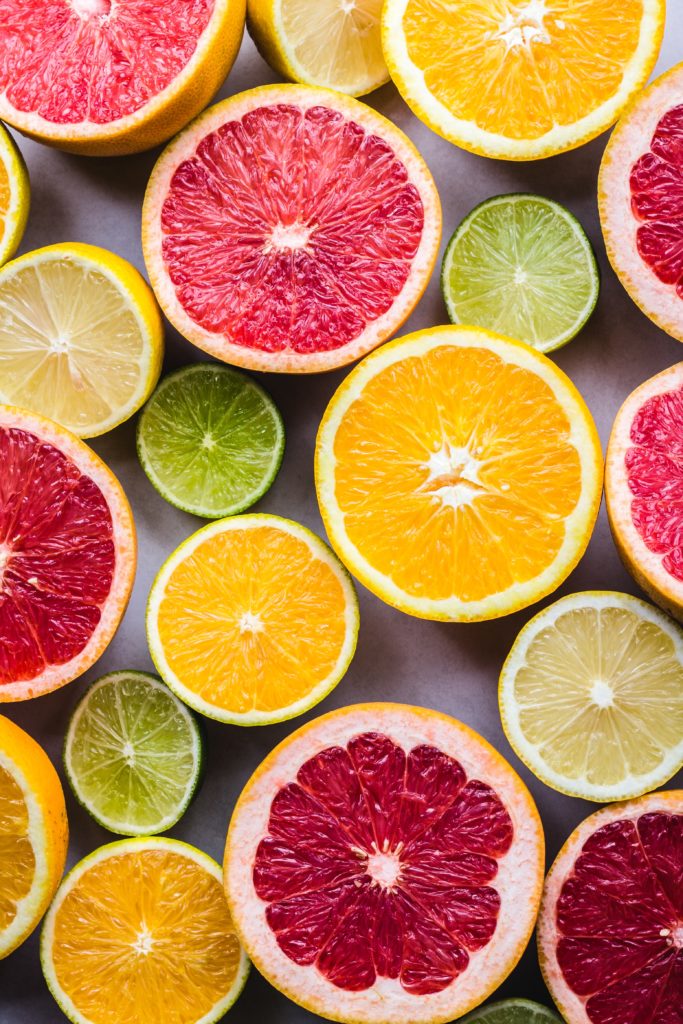
Our bodies naturally create oxidative stress, but an overload can cause inflammation. When you eat foods that are rich in anti-oxidants, they are literally cleaning up that oxidative stress and reducing inflammation.
The sixth food I recommend is berries. It’s summer now in Australia, and all the farmers markets are bursting with beautiful blueberries, raspberries and strawberries. If you’re in the northern hemisphere or found this article in the winter, you can definitely use frozen berries as well. Berries are rich in antioxidants, and getting a variety is key as each berry will provide something slightly different. Our bodies naturally create oxidative stress, but an overload can cause inflammation. When you eat foods that are rich in anti-oxidants, they are literally cleaning up that oxidative stress and reducing inflammation. (We want this!) Think of eating rich colors – those colors represent phytonutrients that are super anti-inflammatory and can scavenge free radicals. They’re also a good source of fiber and rich in vitamin C as well.
Number seven on this list may scare you away – but don’t go so quickly. The seventh food I recommend is liver and other organ meats. I know I know, this is probably the most shocking of the list – but organ meats in particular are like nature’s multivitamin. They have everything you really need to support a healthy baby and are especially high in vitamin A and CoQ10 – which is great for female AND male fertility supplement. If the thought alone is making you nauseous, I recommend taking beef liver capsules, like these from Vital Proteins (affiliate link). And if you happen to live in New York City, one of my favorite Israeli restaurants makes an excellent chicken liver pita – promise, it’s delicious.
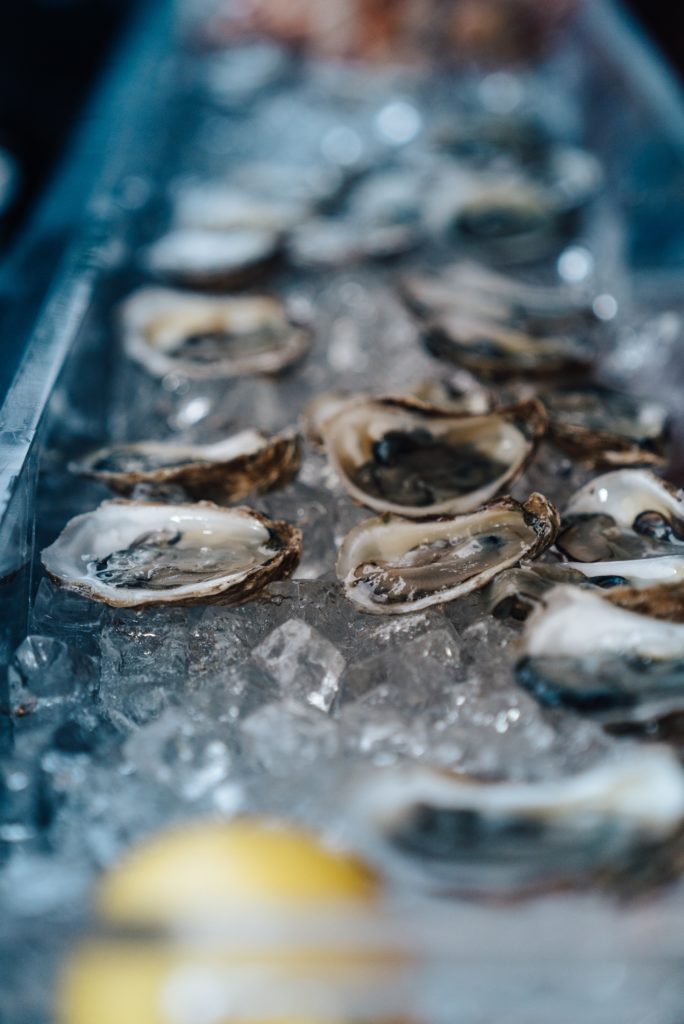
Oyster Date Nights
Now, if I lost you on seven, I think I can win you back with number eight. The eighth food I recommend is oysters – which are the BEST source for bioavailable zinc. They’re also a great source of selenium and iodine – all very supportive for fertility. I love to recommend oyster date nights as it can be a great way to bond with your partner, and eat some delicious fertility foods together. Win, win!
The ninth food I recommend is fermented foods. Sauerkraut, kimchi, kombucha, kefir, and yogurt all have raw active enzymes and probiotics. Probiotics are great for your gut, digestion, and can reduce inflammation. If you’re new to fermented foods, I recommend starting out with a full-fat yogurt. The other items have more intense flavors, so experiment and go slow.
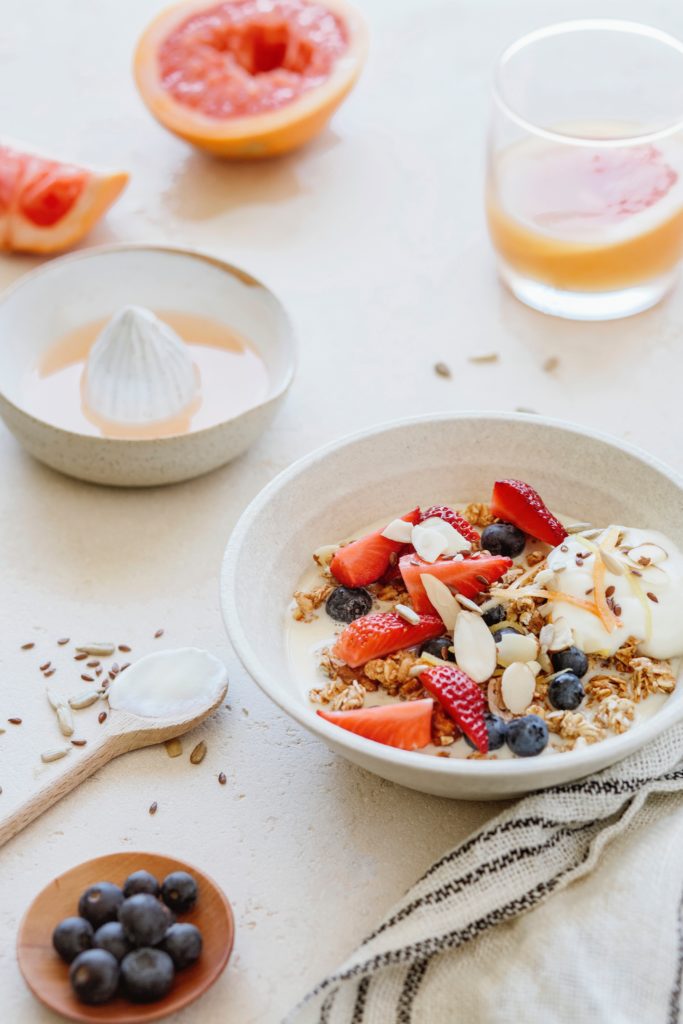
And the very last food I recommend is bone broth. Bone broth provides a rich source of amino acids, namely glycine which is essential during pregnancy. Bone broth is soothing for the gut, it’s anti-inflammatory and can help increase your protein intake.
So there you have it, my top 10 fertility foods for women trying to conceive. If you liked this article, be sure to share it with a friend or pin it for later! And let me know in the comments, which fertility foods are your favorite!


The Preconception Playbook
This free playbook provides specific actionable tips to get started on your fertility journey, as well as what to avoid while you're trying to conceive.
Get the free playbook
